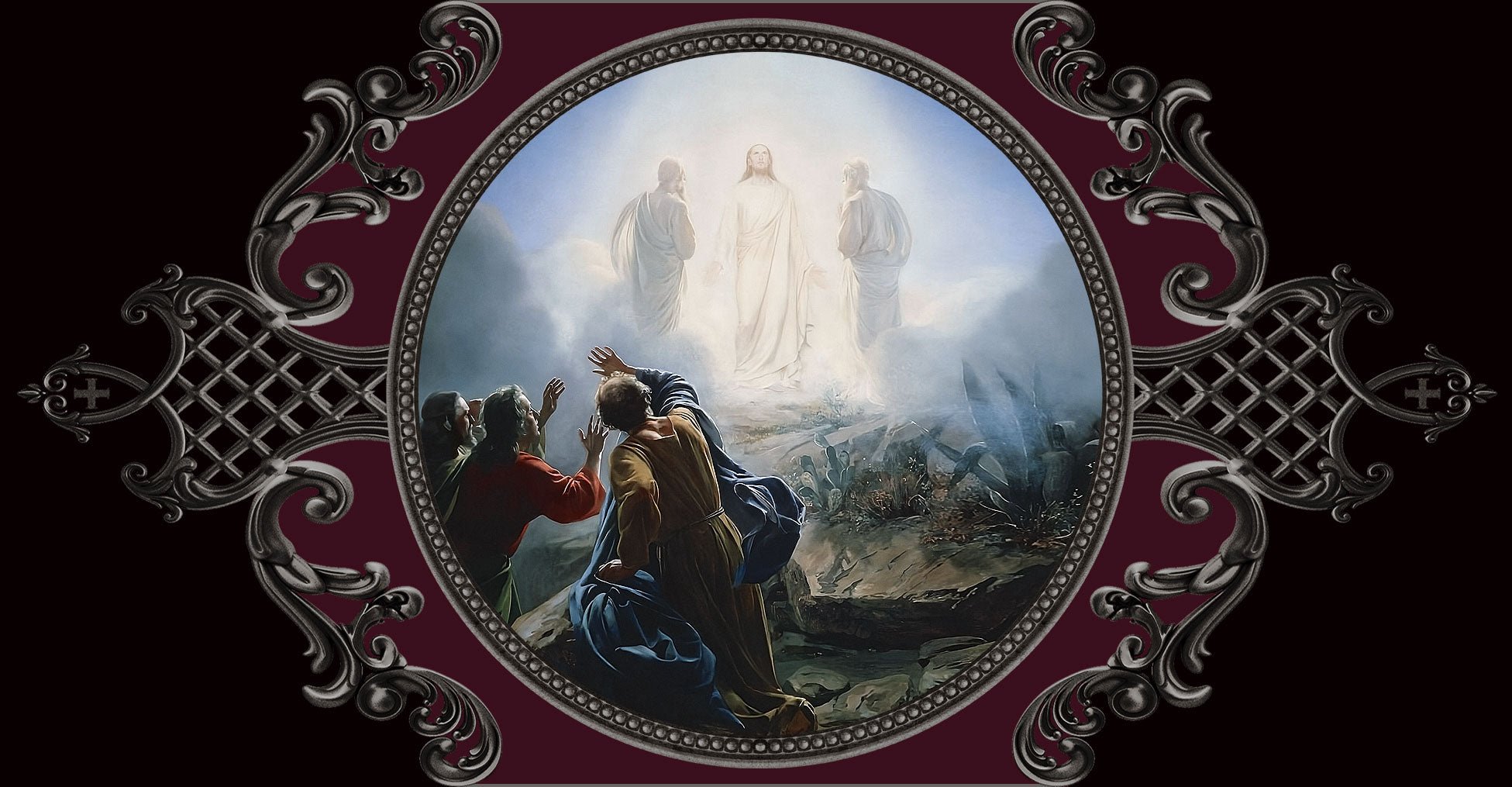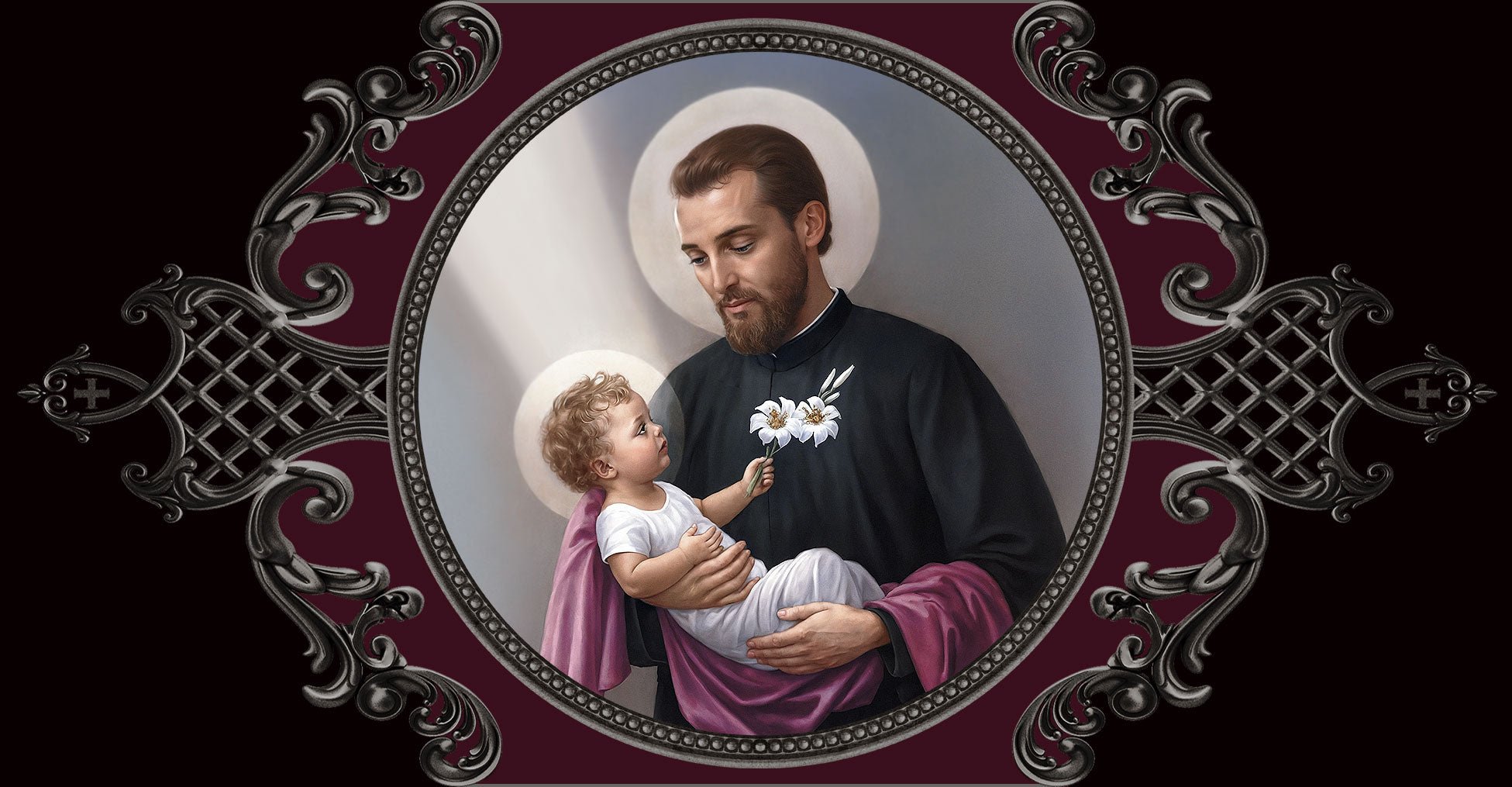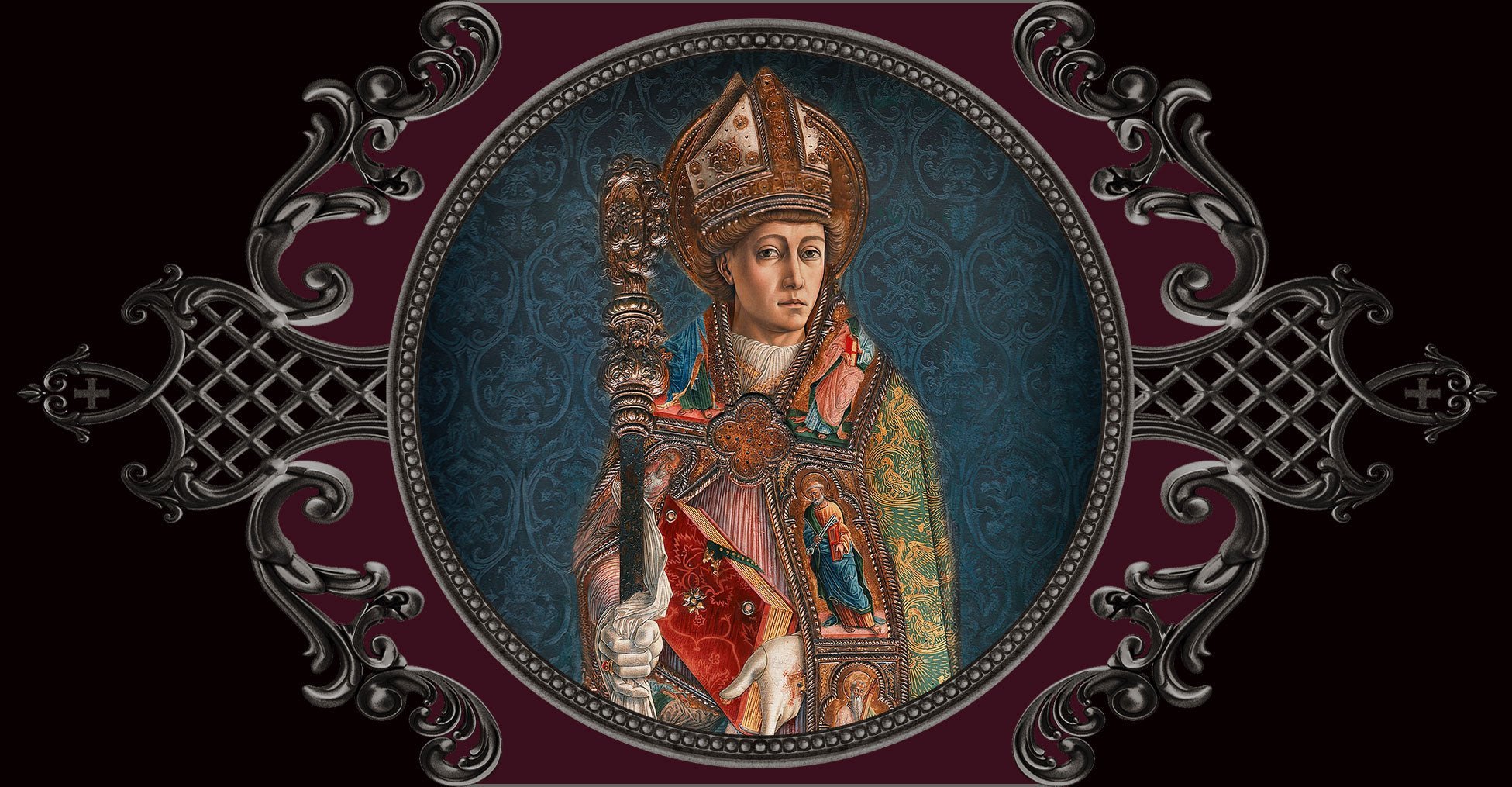
August 6 + The Transfiguration of Our Lord
The Transfiguration is one of the miracles of Jesus in the Gospels. This miracle is unique among others in that the miracle happens to Jesus himself. St. Thomas Aquinas considered the Transfiguration "the greatest miracle" in that it complemented baptism and showed the perfection of life in Heaven. The Transfiguration is one of the five major milestones in the gospel narrative of the life of Jesus, the others being Baptism, Crucifixion, Resurrection, and Ascension.
The Feast of the Transfiguration of Our Lord celebrates the revelation of Christ's divine glory on Mount Tabor in Galilee. After revealing to His disciples that He would be put to death in Jerusalem, Christ, along with Saints Peter, James, and John, went up the mountain. There, Saint Matthew writes, "He was transfigured before them. And His face did shine as the sun: and His garments became white as snow.”
The brightness with which He shone on Mount Tabor was not something added to Christ but the manifestation of His true divine nature. For Peter, James, and John, it was also a glimpse of the glories of Heaven and of the resurrected body promised to His followers. When Christ was transfigured, two others appeared with Him: Moses, representing the Old Testament Law, and Elijah, representing the prophets. Thus Christ, who stood between the two and spoke with them, appeared to the disciples as the fulfillment of both the Law and the prophets.
At Christ's baptism in the Jordan, the voice of God the Father was heard to proclaim, "This is my beloved Son." During the Transfiguration, God the Father pronounced the same words.
The Transfiguration is a pivotal moment, and the setting on the mountain is presented as the point where human nature meets God: the meeting place of the temporal and the eternal, with Jesus himself as the connecting point, acting as the bridge between heaven and earth.
The Transfiguration not only supports the identity of Jesus as the Son of God, but also identifies Him as the messenger and mouth-piece of God. The significance of this identification is enhanced by the presence of Elijah and Moses, for it indicates to the apostles that Jesus is the voice of God "par excellence," and instead of Elijah or Moses, He should be listened to, surpassing the laws of Moses by virtue of His relationship to God. Peter echoes the same message: at the Transfiguration, God assigns to Jesus a special honor and glory and it is the turning point at which God exalts Jesus above all other powers in creation, and positions Him as ruler and judge.



Leave a comment
This site is protected by hCaptcha and the hCaptcha Privacy Policy and Terms of Service apply.